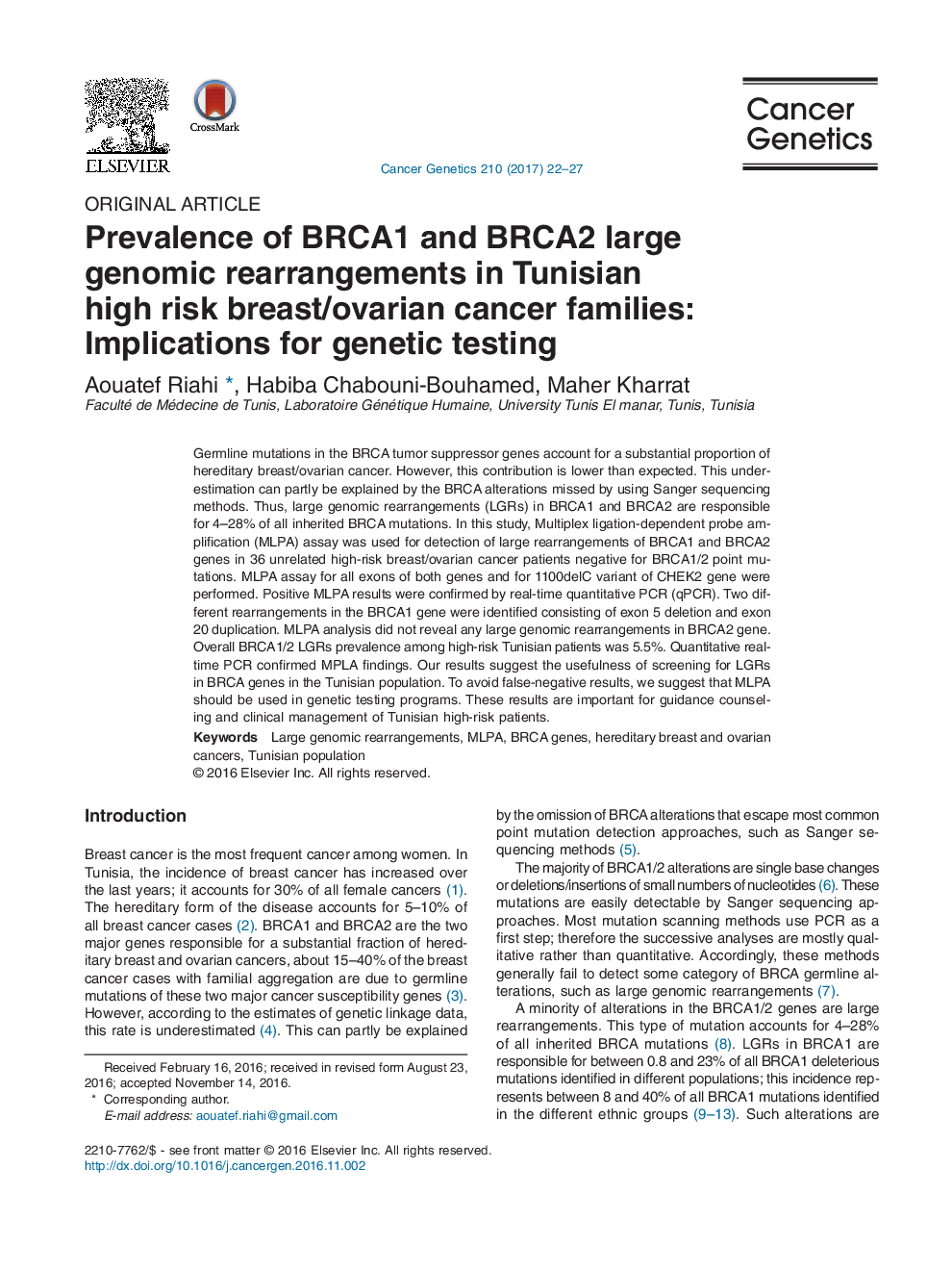| Article ID | Journal | Published Year | Pages | File Type |
|---|---|---|---|---|
| 5525073 | Cancer Genetics | 2017 | 6 Pages |
Germline mutations in the BRCA tumor suppressor genes account for a substantial proportion of hereditary breast/ovarian cancer. However, this contribution is lower than expected. This underestimation can partly be explained by the BRCA alterations missed by using Sanger sequencing methods. Thus, large genomic rearrangements (LGRs) in BRCA1 and BRCA2 are responsible for 4-28% of all inherited BRCA mutations. In this study, Multiplex ligation-dependent probe amplification (MLPA) assay was used for detection of large rearrangements of BRCA1 and BRCA2 genes in 36 unrelated high-risk breast/ovarian cancer patients negative for BRCA1/2 point mutations. MLPA assay for all exons of both genes and for 1100delC variant of CHEK2 gene were performed. Positive MLPA results were confirmed by real-time quantitative PCR (qPCR). Two different rearrangements in the BRCA1 gene were identified consisting of exon 5 deletion and exon 20 duplication. MLPA analysis did not reveal any large genomic rearrangements in BRCA2 gene. Overall BRCA1/2 LGRs prevalence among high-risk Tunisian patients was 5.5%. Quantitative real-time PCR confirmed MPLA findings. Our results suggest the usefulness of screening for LGRs in BRCA genes in the Tunisian population. To avoid false-negative results, we suggest that MLPA should be used in genetic testing programs. These results are important for guidance counseling and clinical management of Tunisian high-risk patients.
